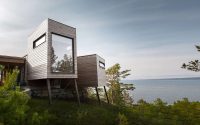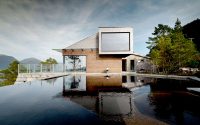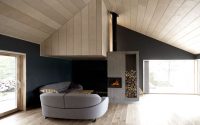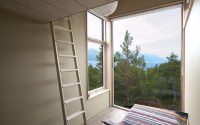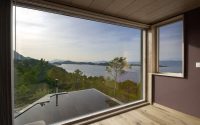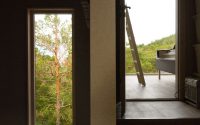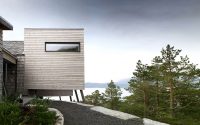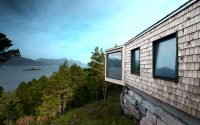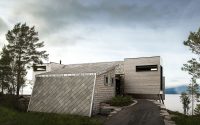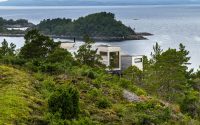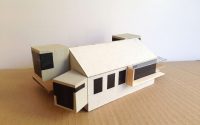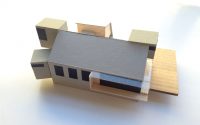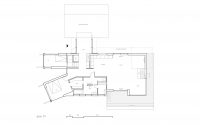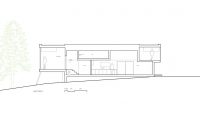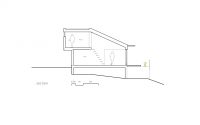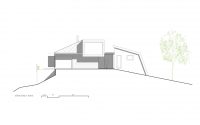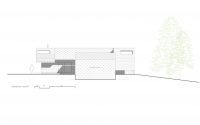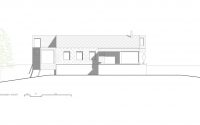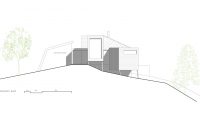Cabin Straumsnes by Rever og Drage Arkitekter
Located in Tingvollvågen, Norway, this contemporary cabin was designed in 2015 by Rever og Drage Arkitekter.

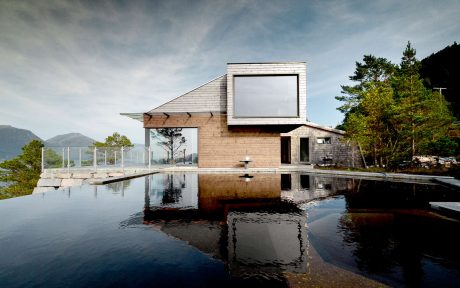
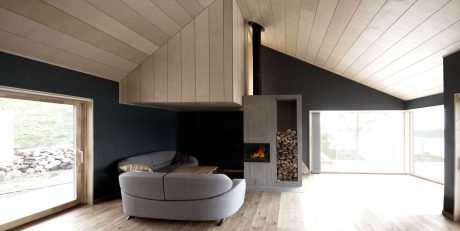
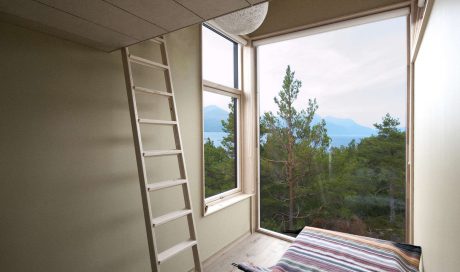
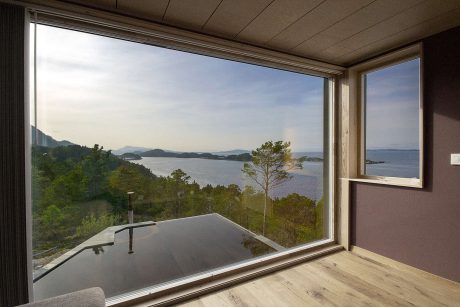
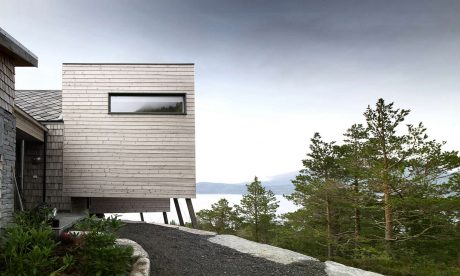
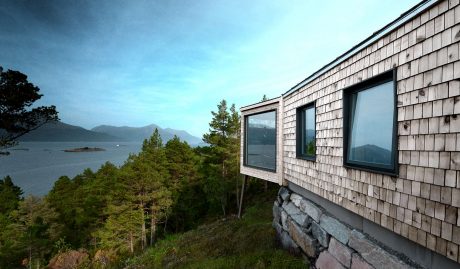
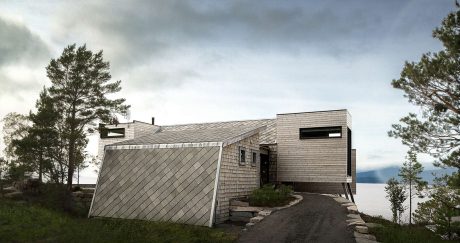
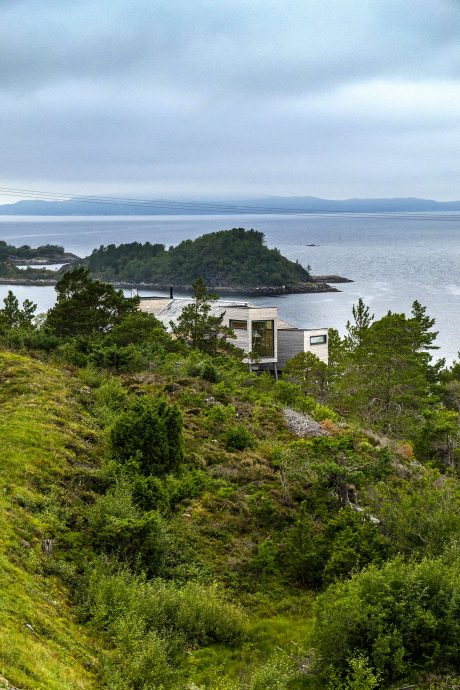
Description by Rever og Drage Arkitekter
Paradoxically the new main cabin at Årsund was built after the annex. This due to the fact that the original cabin, with exception of the annex, was removed to make way for the new-build. Moreover, the annex was drawn by another architect office and completed a few years ago. We therefore had to design a new whole, which included the annex and yet at the same time created a new building which in itself would provide a satisfactory solution both for site and program
The result is both a traditional shelter with a gabled roof, and at the same time a modernist complex of added units dominated by flat roofed modules.
The top, front module facing west contains a small study and has the best ocean views. The room can sway in storms, but the construction allows for flexibility in strong winds! The modules which are leaning towards the eastern wall of the main construction, sheltered from the westerly winds, serve as bedrooms and a retreat for individual family members when they need some time for themselves.
The Taj Mahal-ish front situation shows how the composition is balanced in two ways. First, the ridge of the gabled roof is skewed towards the annex such that the roof of the annex can be seen as the southern side of a large gabled roof, covering both the main volume and the annex. Secondly, the large window of the top front module serves both as a centerpiece for the composition as a whole and as a dynamic counterpart to the glass corner at ground level to the northwest.
The entrance has a somewhat seductive nature by being both inviting and at the same time secretive. You are led towards an entrance by the curved path and by the roofs and volumes surrounding the entrance. Still the entrance remains hidden and uncertain. The use of shingles (which are normally reserved for weather-exposed walls or roofs) on the wall leading to the entrance underlines this ambiguity.
Photography courtesy of Rever og Drage Arkitekter
Visit Rever og Drage Arkitekter
- by Matt Watts